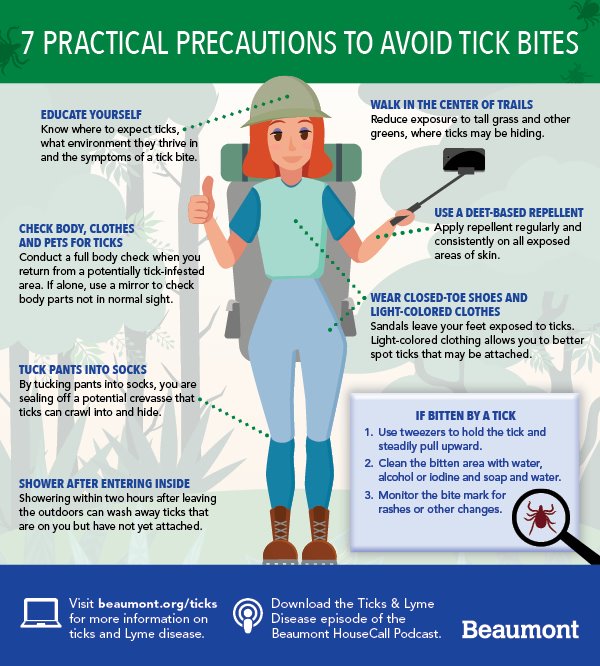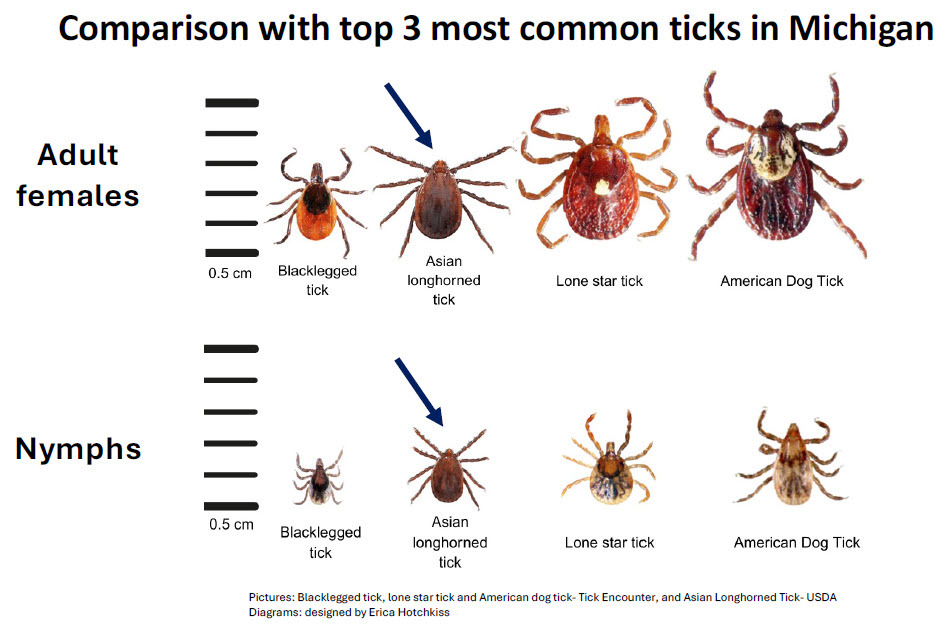- Tick Prevention

Tick exposure can occur year-round, but ticks are most active during warmer months (April-September).
Check your body for ticks after being outdoors. Conduct a full body check upon return from potentially tick-infested areas, including your own backyard. Use a hand-held or full-length mirror to view all parts of your body. Check these parts of your body and your child’s body for ticks:
Michigan is home to several tick species, each with unique characteristics and health risks. The most common include the Blacklegged Tick, Lone Star Tick, and American Dog Tick—and the Asian Longhorned Tick has recently been found in the state.
Blacklegged Tick (Deer Tick) – Can transmit Lyme disease. Females have a dark head and orange-brown body.
Lone Star Tick – Identified by the white dot on the female’s back. May transmit ehrlichiosis.
American Dog Tick – Larger and reddish-brown with white markings. Can transmit Rocky Mountain spotted fever.
Asian Longhorned Tick – Recently detected in Michigan. It reproduces rapidly and may spread disease to animals and humans.
Ticks vary in size depending on life stage—nymphs are tiny but still bite and can carry disease.
Use the tick ID chart (PDF) to learn how to identify the ticks you may encounter.
Benzie Office
6051 Frankfort Hwy, Ste 100
Benzonia, MI 49616
Office Hours
Monday-Friday
8am-12pm and 1pm-4:30pm
Phone: (231) 882-4409(231) 882-4409
Fax: (231) 882-2204
Leelanau County
Health Services
7401 E Duck Lake Rd., Ste 100
Lake Leelanau, MI 49653
Office Hours
Monday-Friday
8am-12pm and 1pm-4:30pm
Phone:
(231) 256-0200(231) 256-0200
Fax: (231) 882-0143
Leelanau County
Environmental Services
8527 E. Government Center Dr. Suite LL-007
Suttons Bay, MI 49682
Office Hours
Monday-Friday
8am-12pm and 1pm-4:30pm
Phone:
(231) 256-0201(231) 256-0200
Fax: (231) 256-0225